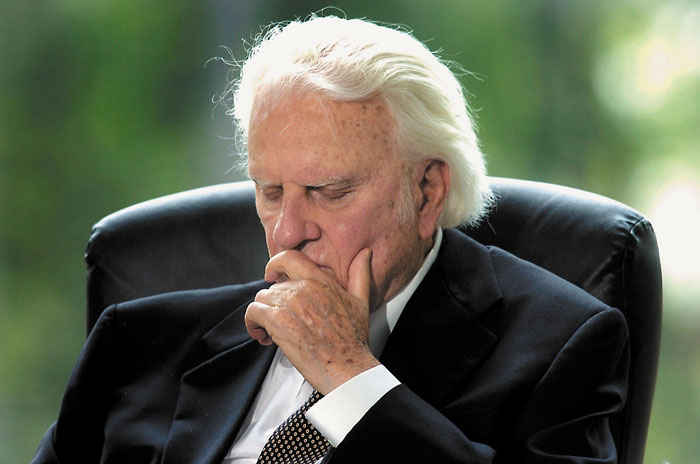D.G. Martin: Who are NC’s public intellectuals?
Published 9:05 pm Wednesday, March 7, 2018

- Dr. Billy Graham in a moment of prayer at the Billy Graham Library Dedication. Wayne Hinshaw/Salisbury Post file photo
Billy Graham’s death and memorial service brought back memories of a column I wrote about North Carolina’s “Public Intellectuals” 16 years ago.
I had noticed a book by Richard A. Posner titled “Public Intellectuals: A Study In Decline.” In his book Posner listed the country’s top 100 public intellectuals.
Posner’s list made me wonder who should be on a list of North Carolina’s top public intellectuals. The only North Carolinian on the list was the late John Hope Franklin, Duke University’s renowned historian of the African-American experience.
What is a public intellectual? I defined the term as follows: He or she is a living North Carolinian whose ideas and opinions are regularly published or circulated widely throughout the state and whose views have a real impact on the way a significant number of North Carolinians live their lives, understand the world around them, and make choices about how they will be governed and by whom. He or she is someone who is forming public opinion rather than just following it.
In addition to Franklin there were two obvious choices: the late former University of North Carolina president William Friday and former governor Jim Hunt. Friday was active for numerous public policy causes. He fought against the state lottery, for limiting the role of commercialism in college athletics, and for holding down the cost of higher education. Until his death in 2012 Friday stayed in the public eye every week with his UNC-TV program, “North Carolina People.”
Hunt still uses his connection with the Emerging Issues Forum sponsored by North Carolina State University annually to set a public agenda for many North Carolinians. Hunt, like Friday until his death, stays busy every day, giving speeches, talking on the telephone, visiting with editorial writers, and stirring pots in the area of public policy.
I thought Billy Graham belonged on the list. Back then, in 2002, he was still active in writing and had not given his last revival sermon.
I put Graham on my list because his example of tolerant and common sense approaches to public issues had an important impact on the way people thought. In the days of strict segregation, Graham’s insistence that his events be fully integrated led many Jim Crow southerners to be open to change.
Who are today’s public intellectuals?
In the past, hard-hitting editorial writers at the state’s major daily newspapers used their platforms to influence public life. But in the past few months the state has lost some of its best voices. Jim Jenkins at the News & Observer, Bob Ashley at the Durham Herald-Sun, Doug Clark and Susan Ladd at the Greensboro News & Record, and John Railey at the Winston-Salem Journal have departed from those papers.
Sadly, many newspapers can no longer afford to fund vigorous opinion pages. Editorial writers whose work does not bring clicks to the big newspaper’s web pages are at risk these days.
But columns and public reporting from smart writers like Colin Campbell, Mike Walden, John Hood, Tom Campbell and, until the end of last year, Chris Fitzsimon, along with others who share their views with newspapers across the state and through blogs, could be considered public intellectuals.
The University of North Carolina System president Margaret Spellings’s informed communications about the need for higher education to be affordable, relevant, and widely available would make her welcomed by William Friday as a fellow public intellectual.
The passionate, informed, and opinion-changing messaging about our responsibilities for the poor from the Rev. William Barber and UNC-Chapel Hill law professor Gene Nichol make them public intellectuals in my book.
Who would be on your list of public intellectuals? Let me know why. Write me at nceateries@yohoo.com
D.G. Martin hosts “North Carolina Bookwatch,” which airs Sundays at 11 a.m. and Thursdays at 5 p.m. on UNC-TV. Today’s guest is John Grisham, author of “Camino Island.”

